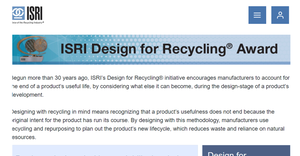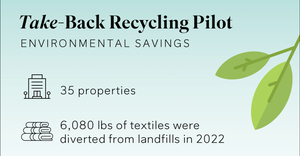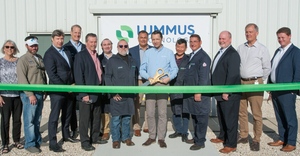NSWMA argues for the advantages of private sector waste services.
April 1, 2011
Thomas Metzger
Since 2008, the National Solid Wastes Management Association (NSWMA) — working with many men and women in the solid waste services industry — has advanced its “Environmentalists. Every Day.” educational campaign to help the public, the media and government officials better understand the vital role solid waste services play in their lives. These educational efforts have included the development of a well-trafficked website, productive meetings with reporters, speaking engagements at schools and community organizations, tours of facilities for public officials, the development of posters and other resources, and more. Through these efforts, we’ve helped a lot of people better understand how vital our industry is to protecting the environment and public health. We have highlighted how solid waste professionals are innovative, responsive to change and essential partners in the communities they serve.
Something noteworthy happened in March 2011. NSWMA released a paper that added an important nuance to our communications. We have started to educate the public about the unique benefits of employing private sector solid waste professionals. All solid waste professionals are important to keeping Americans healthy and communities clean; however, private-sector companies are completing this vital work, by some estimates, as much as 20 to 40 percent more efficiently than their public-sector peers.
This paper details how privatized waste services generate significant cost savings and lower financial risks for budget-strapped municipalities. The cost savings is more and more important at a time when almost every U.S. city is looking to cut its budget. According to the Reason Foundation, the competitive delivery of solid waste services typically generates cost savings on the order of 20 to 40 percent. This is because private companies have the economies of scale to spread investment, environmental protection and procurement costs across multiple contracts and facilities. They also are not hindered by governmental red tape.
In addition to lowering costs, this new NSWMA paper details how privatizing waste services offers communities other benefits:
Privatized waste collection protects recycling rates. This is largely because private sector recyclers have more experience and financial ability to assume and manage risks in volatile commodities markets. The private sector also is responsible for innovations like single-stream recycling, which have helped to double U.S. recycling rates in the last 20 years.
Privatized waste collection creates other environmental benefits. The private sector’s desire to improve services, lower costs and increase safety often results in the adoption of new technologies such as alternate-fueled vehicles, single-stream collection of recyclables, new truck technologies and computer systems to track and more efficiently manage a collection fleet. The private sector has better access to capital to improve or replace equipment and the ability to deploy assets such as collection trucks to different routes.
Privatized waste collection keeps garbage collectors safer. According to the U.S. Department of Labor, solid waste services operated by local governments have an injury rate more than four times greater than their private counterparts.
As a result, more cities and counties are looking at privatizing waste collection than at any time since NSWMA was founded in 1962. As this article was being finalized, it was announced that the City Council of Toledo, Ohio, intends to privatize their municipal garbage system, bringing privately operated waste services to more than 180,000 households in northwestern Ohio. Toledo Mayor Michael Bell said the plan would save the city almost $3 million during Toledo’s next fiscal year, allowing him to hire an additional 25 police officers.
Again, all solid waste professionals should be telling their family, friends, and others about the great work that they do. They should be proud to be a part of an industry that is vital to the safety and health of every American.
But private-sector solid waste services professionals can add an important point to these comments. Whether they previously have used materials from NSWMA’s “Environmentalists. Every Day.” educational program or not, they should read this new NSWMA paper and learn why they can be extra proud to work for their companies.
Thomas Metzger is director of communications and public affairs for the National Solid Wastes Management Association. Reach him at (202) 364-3751.
You May Also Like


